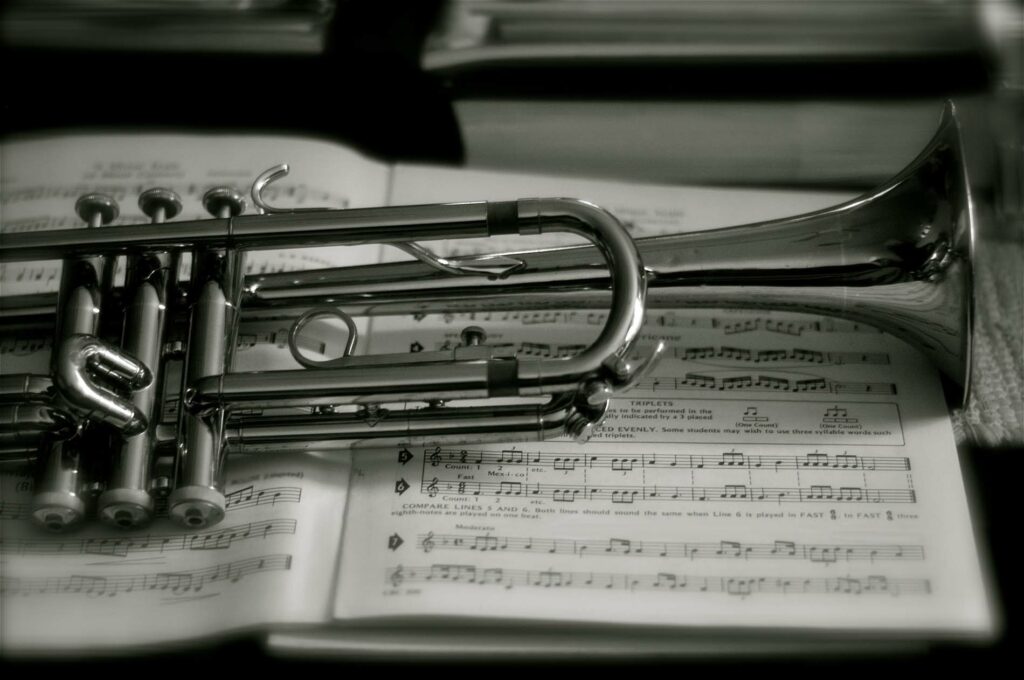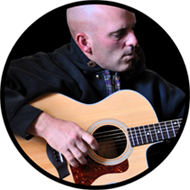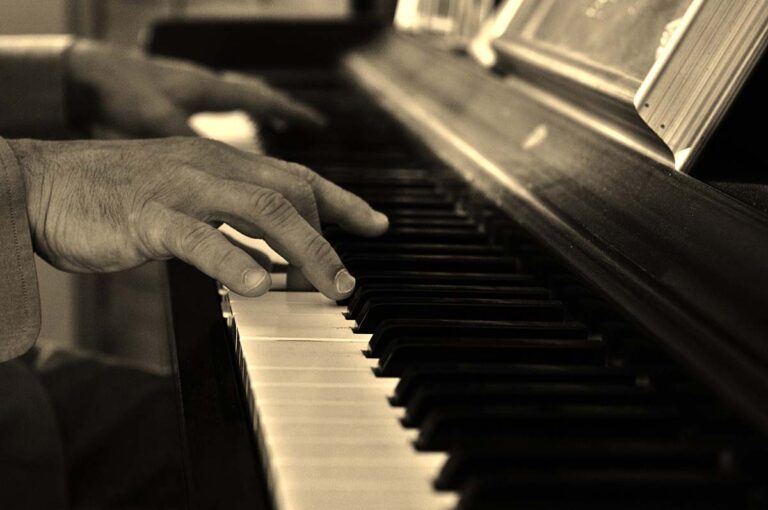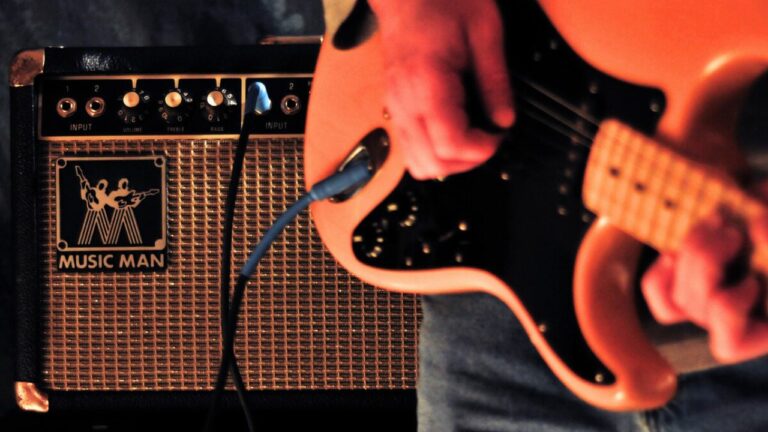First off, let me say this to all aspiring musicians out there that did NOT start learning how to play a particular instrument until later in life, “It’s NOT a requirement to have learned anything about music when you’re young (in your teens, or earlier).” It’s definitely, a plus, but not a “show-stopper” at all. Plenty of people learned how to play the guitar, piano, or (pick-your-favorite-instrument) in their thirties, forties, and so-on, and so-forth…

However, joining the junior high school band, or orchestra has the power to open up a young persons imagination, and even increase their intellect (according to some studies – you can do your own research…)…
Another of my posts you “might” like: 11 amazing benefits of listening to, or playing, music
This post just emphasizes that someone’s first musical instrument experiences are very influential to their growth as a musician. If someone did have the opportunity to learn at a younger age, they might recollect how much more receptive they were to learning at the time. Some things learned at that early age, can sometimes be hard to forget. If you (I) were taught good musical habits, then that’s great benefit in your adult life as a musician…
Why join the school band, or orchestra?
Lots of times, peoples’ first thoughts of the elementary, or junior high school, band, or orchestra, is that it’s just some activity to get kids involved in…. just because…. “It’ll be a great group experience for the child.” While that is very true. There are other reasons being in the band, or orchestra could be quite beneficial to a child, especially if they actually become involved in music on a greater level later on in life. Someone’s first musical instrument experiences are some of the most in-grained memories they’ll create about music overall.
Sometimes when we think of younger people (elementary school, or junior high school ages), we think that they probably dismiss a lot of what they encounter in their daily lives, but some those experiences will stick with us for ever.
The trumpet was the first musical instrument that I learned to play. Well… actually that’s not entirely true. My father taught me how to play “Heart-n-Soul” on the piano first, but… the trumpet was the first instrument that I learned to play in a curriculum setting (I think that’s the right way to say it)… Meaning, that, although it was mostly fun, there were times I had to engage in certain musical activities that I was not that motivated to do, and probably would not have done, if the band teacher had not made it a requirement for the day…
< More Music-Related Photos From My Flikr Album >
You learn how to read music
While taking part in my junior high school band, I had to learn to read music, in particular, treble clef music, since that’s where the trumpet notes lie. For that day on, I will never need to learn the treble clef notes ever again. And these notes are, of course, the same for any musical piece – the treble clef, is the treble clef whether you’re playing the trumpet, or the piano, the guitar… whatever…
Obviously, it’s not that hard to learn what each line (and in between each line) on the treble clef represents, and it’s also not a requirement for musicians to be able to read music in the first place; however, it certainly doesn’t take away from a musician’s capabilities either.
Site-Reading
I realize there are prodigies that excel at much earlier ages, but for the average person (who might become a music professional later in life) learning to read music at an early age (say, 12 years-old, or earlier) is a definite plus. In the band, I also had to pass periodic site-reading exercises. Site-reading involves being able to play a piece of music that you’ve never played, or read, before immediately upon it being placed in-front of you.
So, for the trumpet, it would be like this…. I sit down with the trumpet in hand positioned to play, a piece of music is put in-front of me, and I simply start playing that piece of music – no practice, no reading it before-hand, etc. … Sometimes these exercises went well, and others, well… a few mistakes might have been made. But overall, site-reading exercises really force you to learn how to read and understand music on a deeper level. Granted, at the junior high level, these site-reading exercises did not involve complicated pieces, but I was nervous each time none-the-less…
Another thing that I seemed to pay attention to during those band days, was how well (or, not-so-well) each of the different instruments seemed to blend together. Even at such an early age, you can tell when one instrument seems to be over-taking another more-so than it should be. It’s just natural for all human beings to sense that right-away. Being exposed to that early on, and seeing how its dealt with by the band teacher, leaves an impression for you to lean on later.
You learn what it’s like to be embarrassed
As adult musicians, we certainly know when we make a mistake in our playing, and are just hoping that no one else noticed it (especially someone in the audience – if performing for an audience). Well, the more you get to experience those embarrassing moments, the more you learn how to successfully deal with them.
As a trumpet player in the junior high band, those notes really stand out in the music. I can definitely recall being nervous that I would not quite hit that high note, or just forget what I’m playing all together. The fear was always there. And as any imperfect human will do, I did hit that occasional wrong note, or just plain lost my place in the music at some point. Not exactly the best feeling in the world, if ya know what I mean.
Now, with the guitar being my primary instrument, the only difference is that I’m more capable of laughing at myself when these unfortunate events happen – even if I seem to have annoyed others around me. It kind of goes like this, “Alright… OK… So I screwed up… I apologize, but I can’t take it back… either keep listening, or turn away… the choice is yours.”…
There’s always someone better
Sometimes, no matter how hard you practice your playing… No matter how much enthusiasm, time, and effort you put in to being your best… “Little Scotty” seems to always out-play you, or maybe even “Jeffrey” came out of nowhere to place a chair-or-two ahead of you in the trumpet (pick-your-instrument) line-up…
Learning that you’re not going to always be the best at what you do, helps to keep things in perspective, and helps you to realize that you don’t have to be “The Best, of The Best, of The Best…Sir!” in-order-to be of useful service to others. There’s plenty of opportunity out there for everyone who’s interested. Those opportunities might not be as wonderful and as glamorous as you had hoped for initially, but you may find that’s not a bad thing after all…
You’re exposed to multiple instruments
In any group of musicians, you’re consciously, and subconsciously collecting data about every instrument you’re exposed to. You start to learn the different approaches for each of the instruments. For example, in the junior high school band, over time you start to notice how certain instruments (like the trumpet – or flute) tend to emphasize the melody of the musical piece, while the trombones, tubas, and percussionists (drummers) emphasize the chord changes providing the structure that keeps the music together.
Although subtle at this younger age, learning these types of things greatly increases our musician abilities overall. We learn the importance of how a group of instruments are “supposed to fit together.” That, although most pieces of music have a “star (so-to-speak),” the instrument that gets most of the spotlight, the other instruments have their place and usually make “the star” shine even brighter that it normally would without the help of it’s brothers and sisters…
Lastly, you learn how to work with other musicians
Working / Communicating / Conversing / Arguing / Whatever you want to call it… with other musicians is normally not that difficult in the elementary, or junior high band, or orchestra. My memories of playing in the junior high band are pretty positive, enjoyable memories.
But as some of know, when we get older, there’s seems to be less patience and more pride involved in our dealings with each other in the area of music (at least, that’s been my experience). 85% of the time seems to have been positive, but when that 15% rears it’s ugly head, people’s voices tend to raise, people get up and leave the room slamming doors behind them, etc. etc. etc. …. It’s just not pretty sometimes… Looking back, I think about some of those bad experiences and say to myself, “That was just a stupid, silly argument that I should’ve just left alone.”…
Bottom line, opposite of everything else in life, us “adult” musicians tend to get “our little feelings hurt” more so than children, when things don’t go our way, or when someone doesn’t like our view on things. Worse… when someone doesn’t like our playing, our performance… We take ourselves waaaay too seriously sometimes…
In Conclusion . . .
Elementary, or Junior High (& / or High) School Band experiences greatly influence our approach to music when we become adults. Again, it isn’t necessary for someone to have had these experiences in-order-to have highly fulfilling musical experiences later in life, just that they add (usually in a positive way) to our overall growth as musicians… If you want to provide your young son, or daughter with another creative outlet in their lives (that could prove highly beneficial to them as adults) get them involved in the school band, or orchestra… Who knows what might happen in the near future…
Until Next Time!




